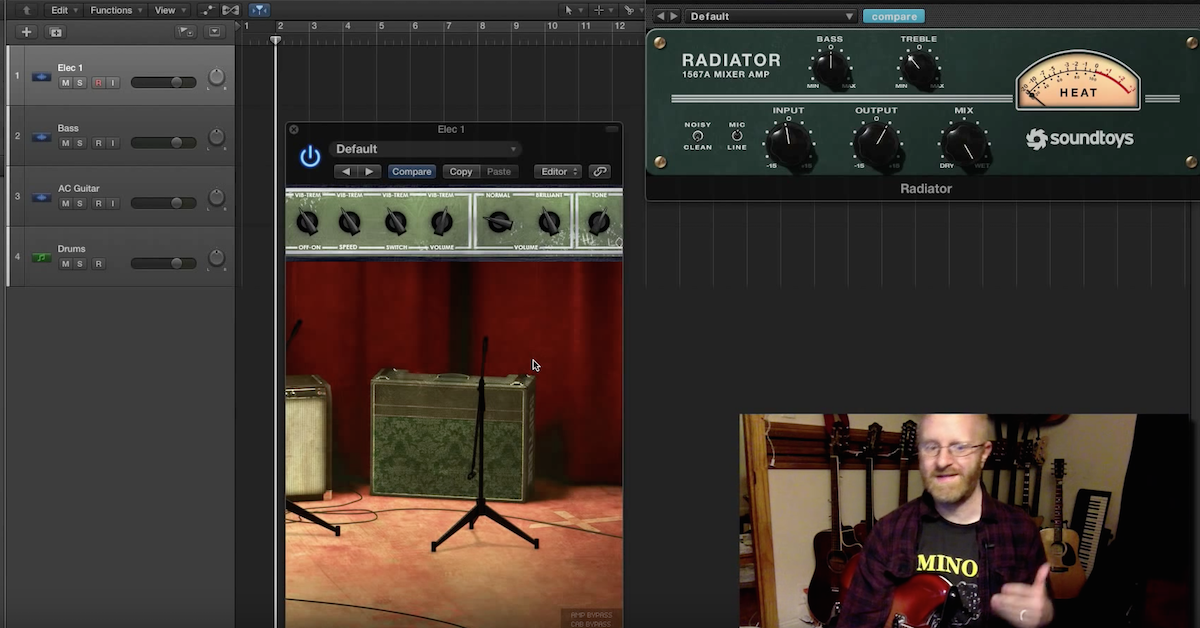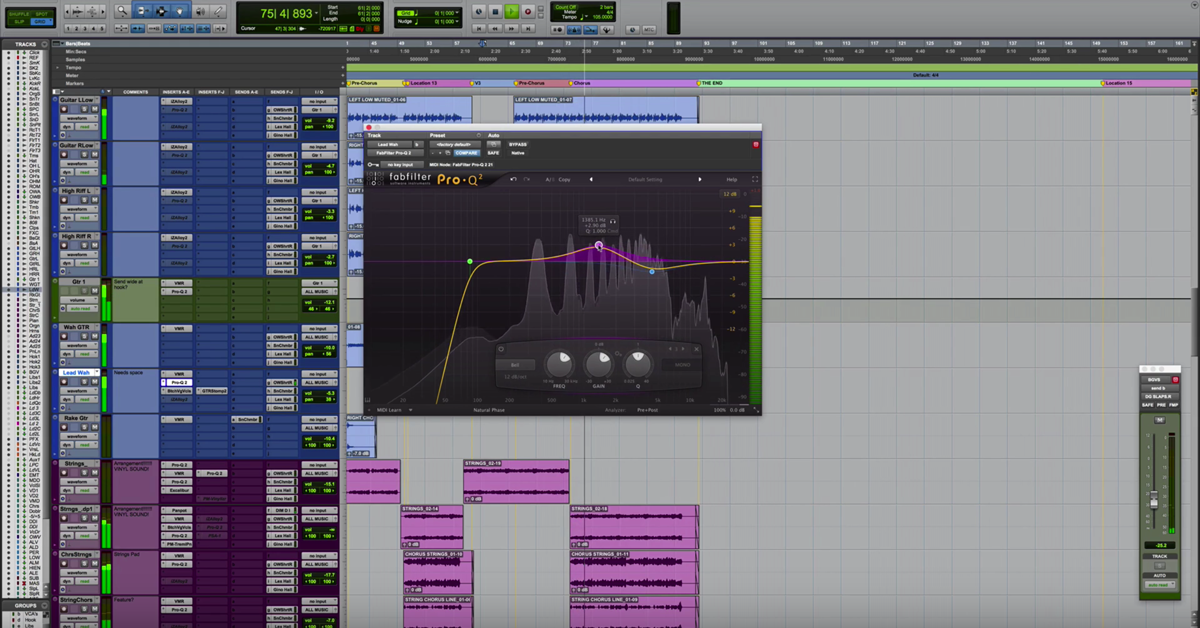9 Essential Traits of a Great Session Guitarist
Article Content
1. Ear Training
Music is a language. The more fluent you are in that language, the more efficient and creative you can be.
Can you hear a phrase and play it back like you could repeat a sentence spoken to you?
Great session guitarists don’t need to ask for the song’s key signature or chord progression. They can hear that stuff.
Time spent ear training is time well spent. It’s probably the most important skill you can have as a musician.
2. Reading Music
It’s rare these days that I roll up to a session where there’s a chart to sight-read. On a really organized session, there may be a lead sheet with chords and forms on it.
To some, reading music may seem antiquated. But just because it’s hardly required anymore doesn’t mean that it’s unimportant. Knowing how to read music does some great things, even if you don’t have a chart.
Sometimes I make notes about phrases I’m asked to play or have created in a session. Ideas can come to me quickly, and sometimes they can disappear quickly, too. Writing them down lets me document ideas, which is especially helpful when tracking with a live band.
I also find musicians who read music tend to remember song forms and ideas faster. This is because they’ve trained their mind to be focused. They can deal with time signature changes quicker, and they have more control over what they’re playing. They’re still feeling the music but have the capacity to steer the ship.
3. Taste in Gear
Often when you get called for a session, it’s not just because you play guitar. It’s because of your taste in tone. You’re expected to show up with a curated selection of gear for that specific session.
You need to know what tones you can get from your gear. It doesn’t mean you need 1,000 guitars; it means you need a few that you understand the full capability of.
4. Support
A great session guitarist knows when to suggest ideas and when to keep mum. I find as a session guitarist, I’m not hired to be completely silent.
I’m aware of the comments I make though. I don’t want to be too opinionated. I mean, no matter what, it’s an opinion. But, I don’t push my point like it’s a presidential debate.
5. It’s Not Personal
Everything you play or like isn’t always going to be right for the song. Be aware it’s not your project, and don’t try to make it your project.
Creating weird vibes because someone doesn’t like a tone won’t win you future gigs. If a producer or artist doesn’t like a sound or part, move on. You can have your say on your solo project.
This goes back to the support trait: you’re there to help the artists realize their vision.
6. Be Cool
A session is not the time to be name dropping about your other projects unless asked. And even then, try not to give a speech for the Oscars about all the great things you’re doing. Think water-cooler talk.
Share something cool you’re working on, but keep it conversational, not promotional.
7. Stingy
We all have things to do and life is expensive. Don’t be too stingy about everything though. Make sure you set up good boundaries about time and pay before the session. And once you’re there don’t make the artist feel like you’re watching the clock.
Never change your rate on the session or make extra demands. All of this should be handled before you’re in the studio. When you arrive it’s time to make music. Nobody wants to think about money.
8. Ear Library
Listen to a lot of music. Have a good grasp on the style of music you’ll be playing in the session. You don’t want to eat at a Thai restaurant that doesn’t know Thai dishes, do you?
Be honest about the music you know well. It’s a bad idea to misrepresent yourself. Don’t be afraid to turn down a session that’s out of your wheelhouse. You may actually gain work in your strengths in the future. Besides, people will respect you for being honest.
9. Memory
Things move fast in a session. It’s important you focus and remember what’s asked of you.
If there’s a light rhythm change, you should only have to be asked once. Same is true with a chord or note alteration.
If your memory isn’t the best, keep some paper and a pencil with you. Write it down! It’s frustrating as an artist or producer to keep reminding musicians of changes.
Do you have any suggestions for what makes a great session guitarist? Please leave a comment below. We’re all stronger by sharing our experiences.






